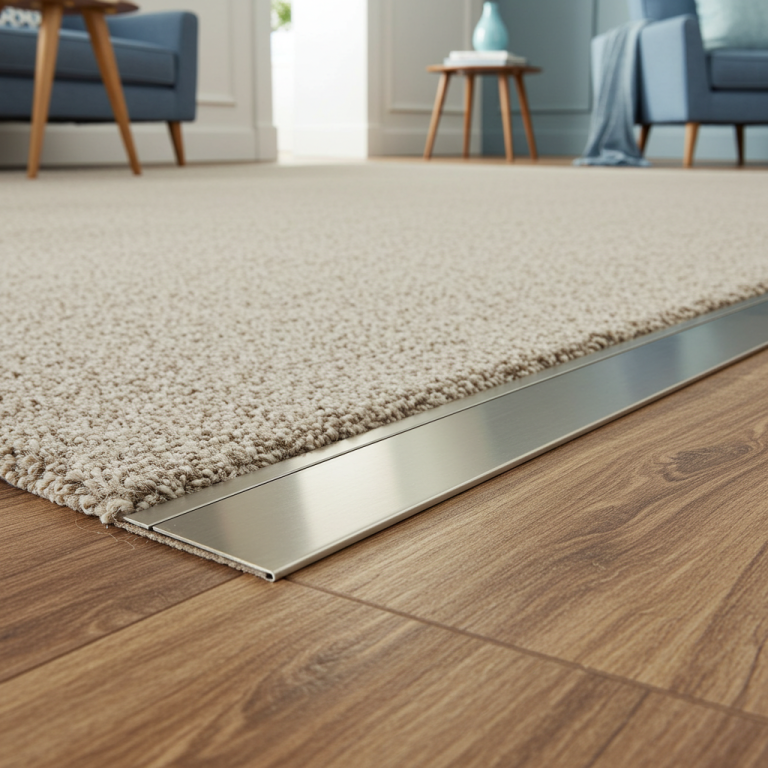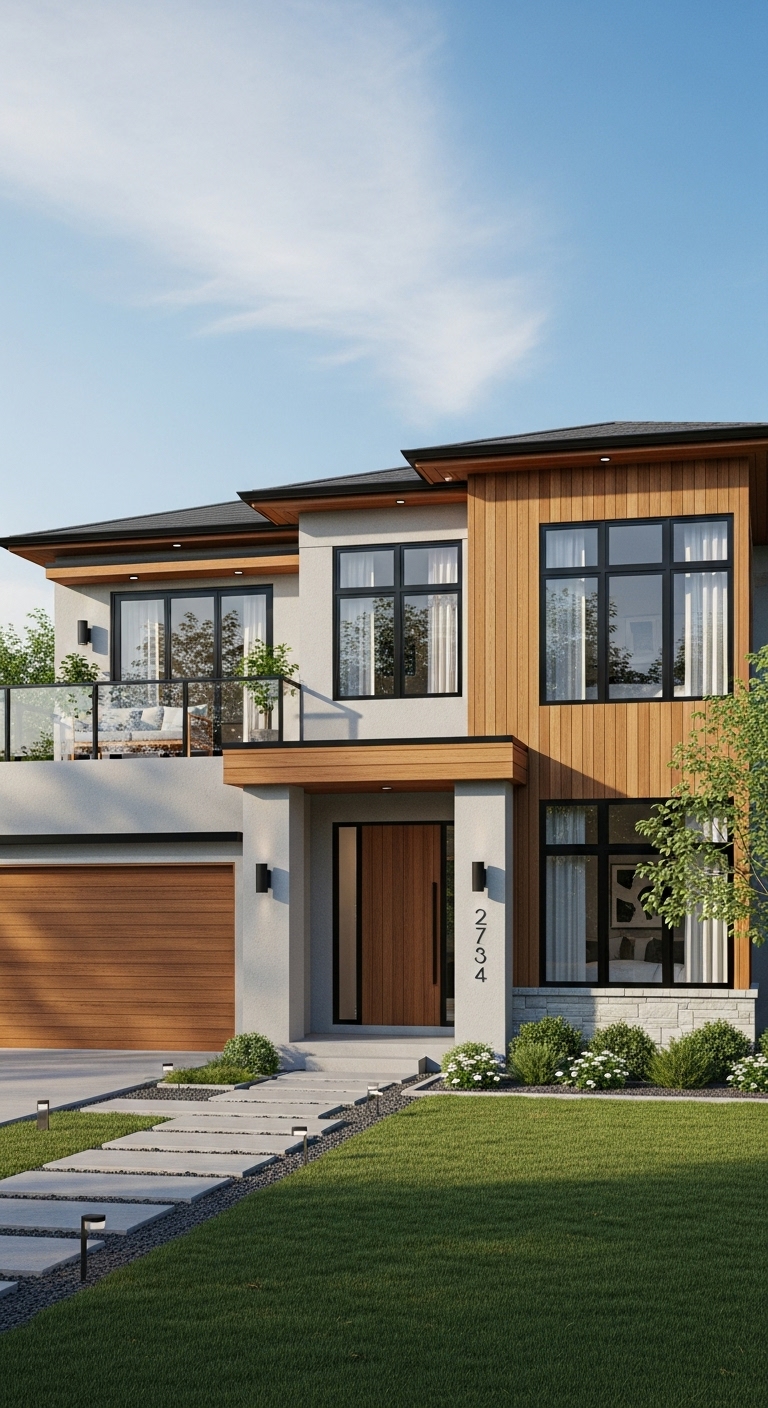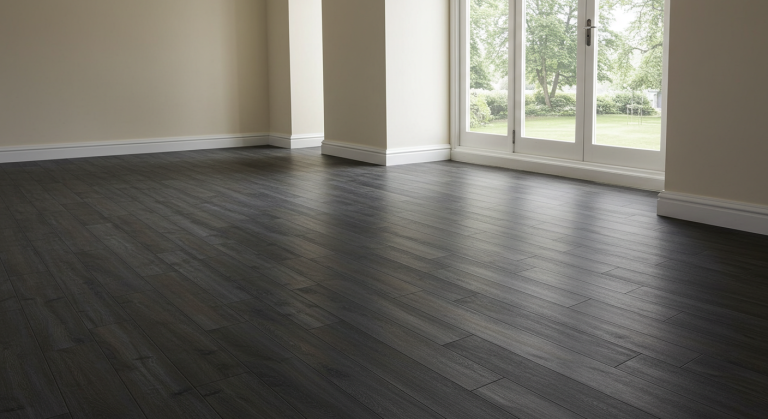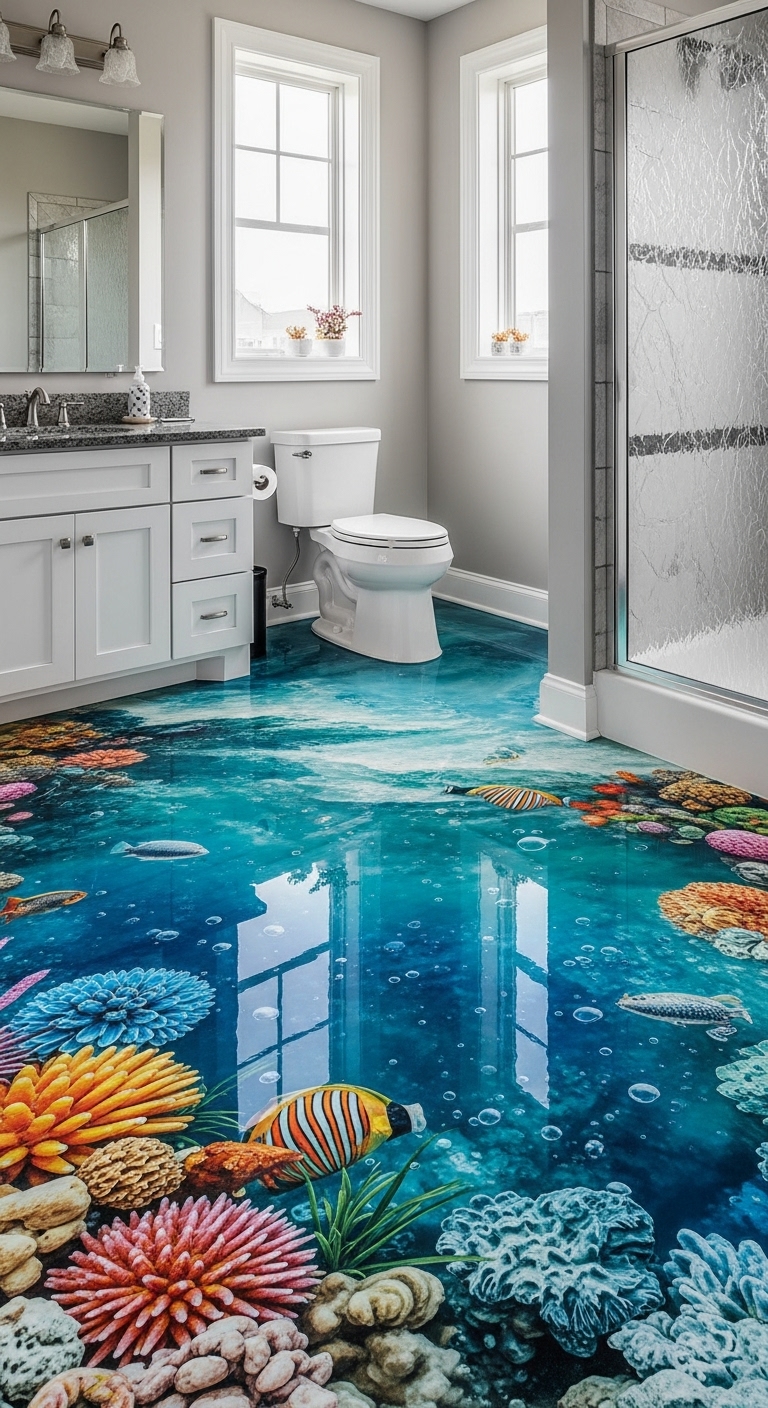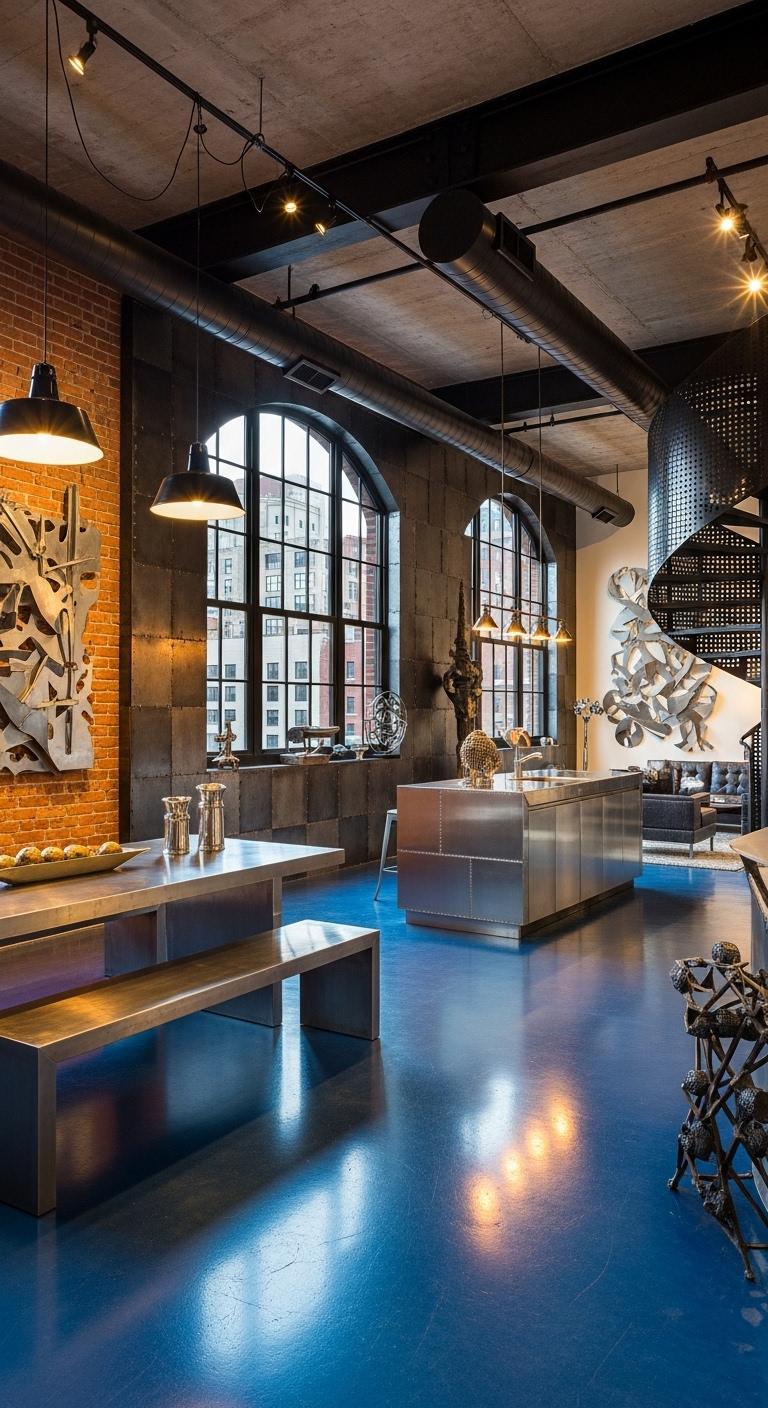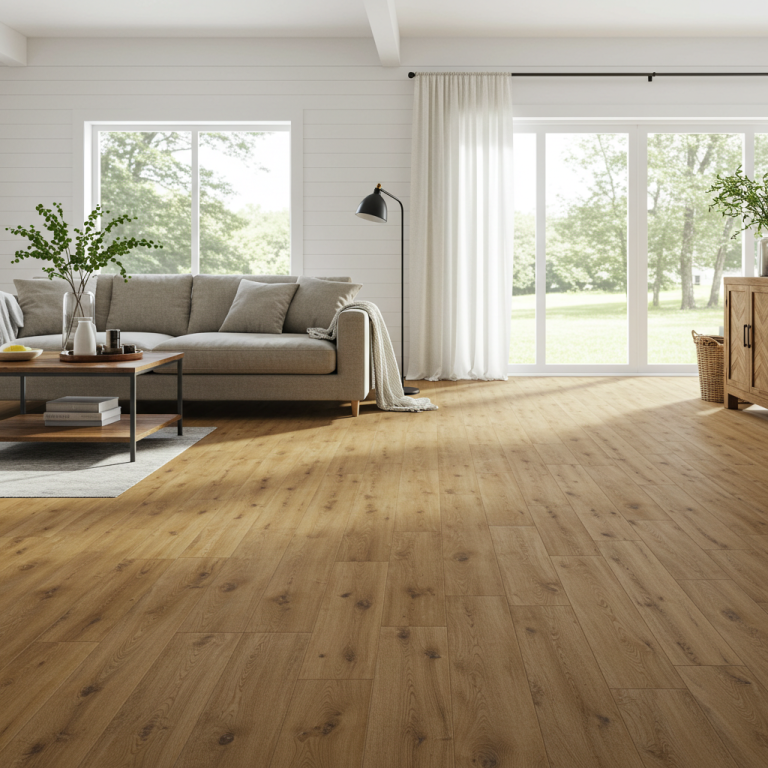Mudroom Flooring Ideas: Stylish & Durable Options for Every Home

Introduction
Your mudroom is the gateway between the outdoors and your home. It’s where muddy boots, wet umbrellas, and snowy shoes often end up. That’s why choosing the right flooring is essential. The best mudroom flooring should be tough enough to handle dirt, moisture, and heavy traffic while still looking stylish and welcoming.
In this guide, we’ll explore 15 mudroom flooring ideas that balance durability, functionality, and aesthetics.

1. Porcelain Tile
Porcelain tile is one of the most popular mudroom flooring choices because it’s waterproof, stain-resistant, and available in countless designs. It can mimic natural stone, wood, or even concrete.
- Pros: Extremely durable, easy to clean, stylish designs.
- Cons: Cold underfoot, grout needs sealing.
- Best For: Homes in wet or snowy climates.

2. Ceramic Tile
Ceramic tile is similar to porcelain but usually more budget-friendly. It works well for busy mudrooms and comes in colorful patterns or neutral tones.
- Pros: Affordable, water-resistant, versatile styles.
- Cons: Can chip or crack, slippery when wet.
- Best For: Families looking for affordable durability.
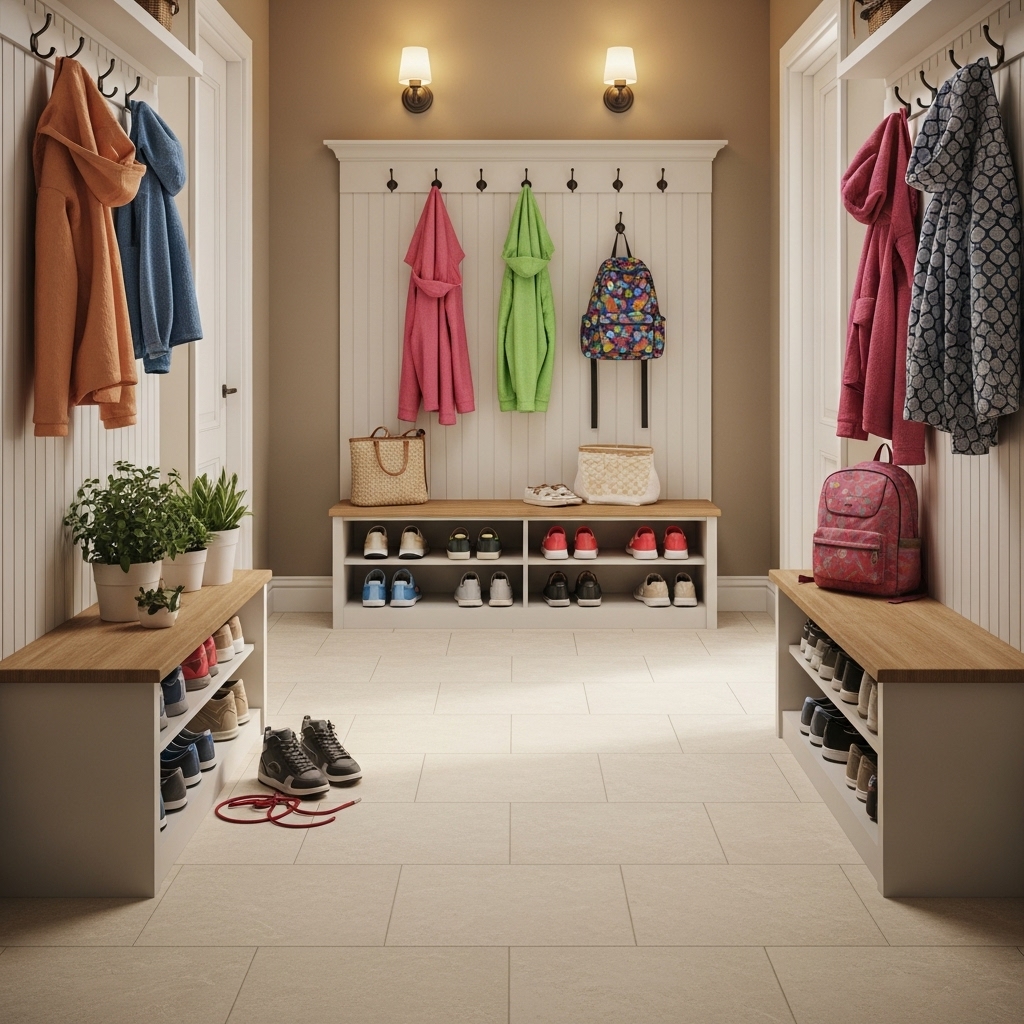
3. Natural Stone
Slate, travertine, or limestone flooring gives a high-end rustic look to a mudroom. Stone is naturally durable and adds texture.
- Pros: Luxurious appearance, strong, long-lasting.
- Cons: Requires sealing, can be expensive, cold underfoot.
- Best For: Homes with rustic or farmhouse style.

4. Brick Flooring
Brick brings a timeless, classic feel to mudrooms. It’s durable, slip-resistant, and naturally hides dirt.
- Pros: Strong, earthy, non-slip texture.
- Cons: Needs sealing, can be rough underfoot.
- Best For: Farmhouses, traditional homes, or rustic entryways.
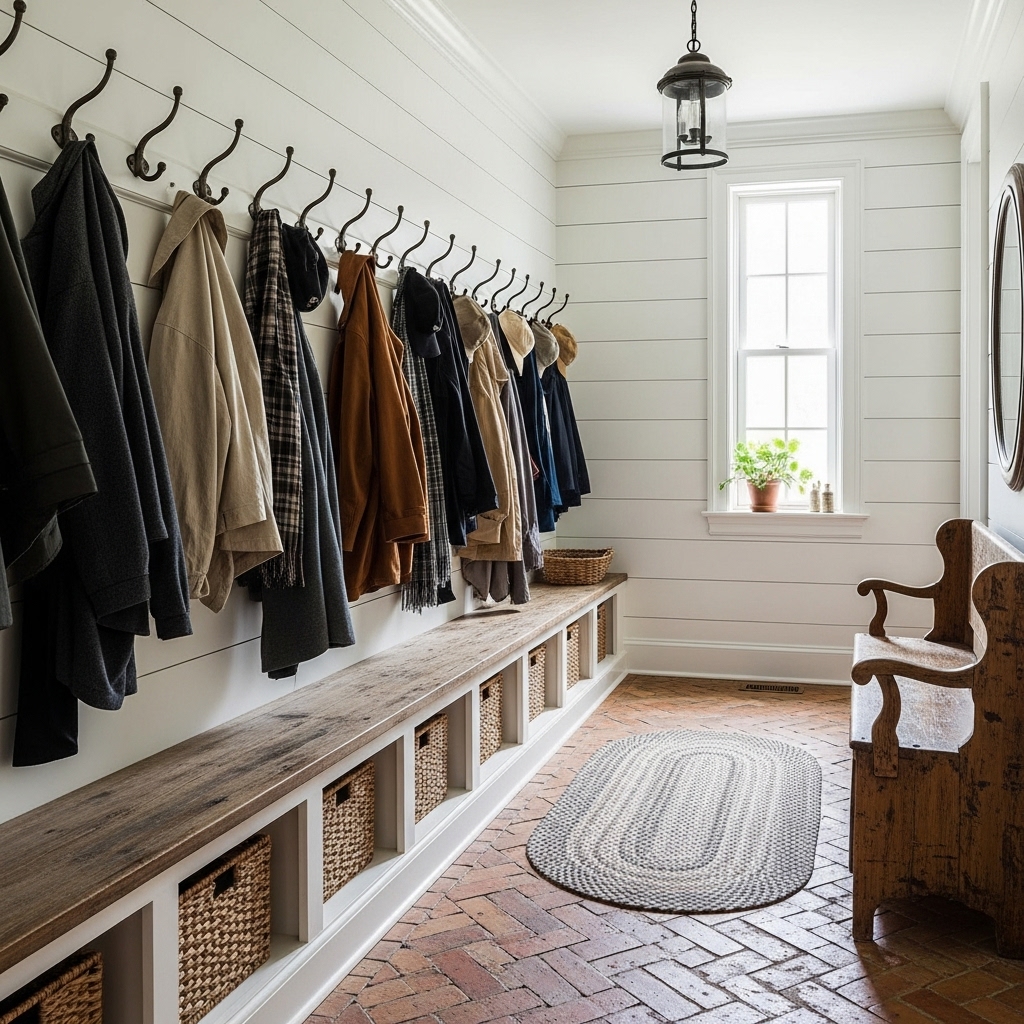
5. Vinyl Sheet Flooring
Vinyl sheet flooring is waterproof and budget-friendly, making it a practical choice. It comes in patterns that mimic wood or stone.
- Pros: Affordable, seamless waterproof surface, easy cleaning.
- Cons: Can dent or tear, not as premium-looking.
- Best For: Busy families with pets and kids.

6. Luxury Vinyl Plank (LVP)
LVP looks like hardwood but resists water and scratches better, making it perfect for mudrooms.
- Pros: Stylish wood look, waterproof, comfortable underfoot.
- Cons: Not as long-lasting as tile or stone.
- Best For: Modern or transitional mudroom designs.
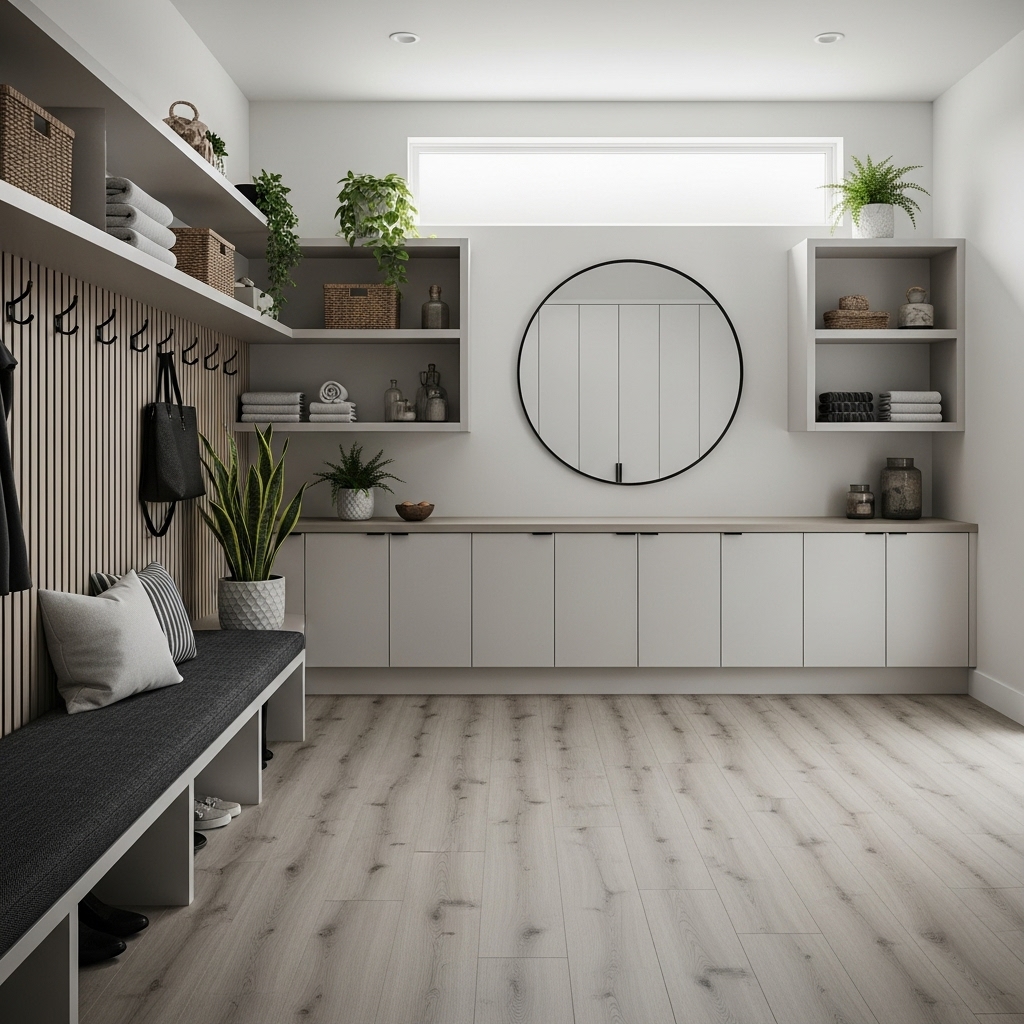
7. Luxury Vinyl Tile (LVT)
LVT is thicker and more durable than sheet vinyl. It can mimic stone or tile while being easier to install and softer underfoot.
- Pros: Stylish, waterproof, budget-friendly.
- Cons: Seams may allow moisture if not installed properly.
- Best For: DIY-friendly mudroom flooring.

8. Concrete Flooring
Concrete can be polished, stained, or painted for a sleek industrial look. It’s nearly indestructible.
- Pros: Durable, customizable finishes, waterproof.
- Cons: Hard underfoot, can feel cold.
- Best For: Modern, industrial-style mudrooms.

9. Epoxy Flooring
Epoxy coating over concrete creates a glossy, seamless, waterproof surface. It’s popular for garages but works well in mudrooms too.
- Pros: Waterproof, stain-resistant, sleek finish.
- Cons: Professional installation required, slippery when wet.
- Best For: Minimalist, industrial mudrooms.

10. Rubber Flooring
Rubber flooring is non-slip, shock-absorbent, and easy to clean. It’s often used in gyms but is perfect for mudrooms with kids and pets.
- Pros: Slip-resistant, durable, waterproof.
- Cons: Limited style options, may smell initially.
- Best For: Active households with kids and pets.

11. Engineered Hardwood
Engineered hardwood gives a warm, natural look while being more resistant to moisture than solid hardwood.
- Pros: Classic wood appearance, more stable than hardwood.
- Cons: Still not fully waterproof, needs care.
- Best For: Stylish mudrooms that connect to open living spaces.
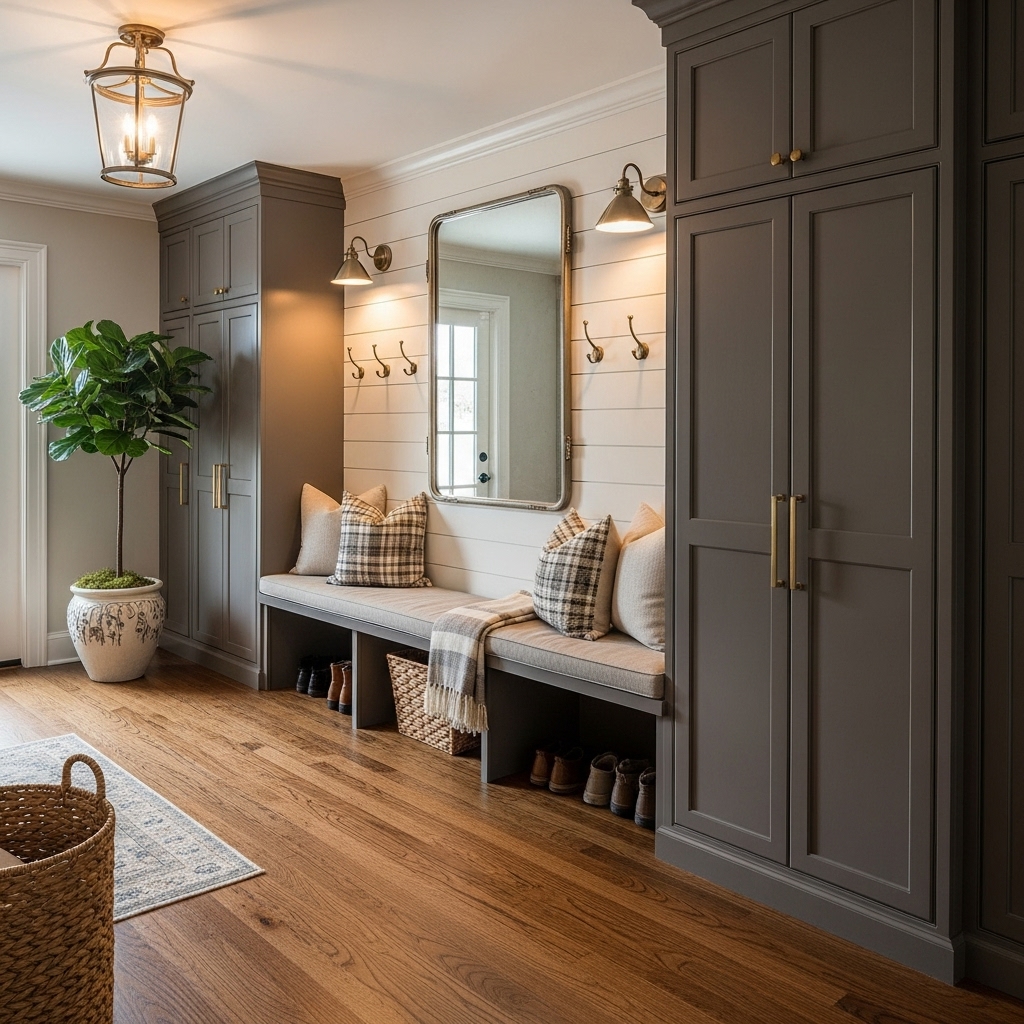
12. Laminate Flooring
Waterproof laminate is an affordable alternative to hardwood. It’s easy to clean and resistant to scratches.
- Pros: Affordable, wood-look finish, easy maintenance.
- Cons: Can swell if water seeps into seams.
- Best For: Budget-conscious homeowners.
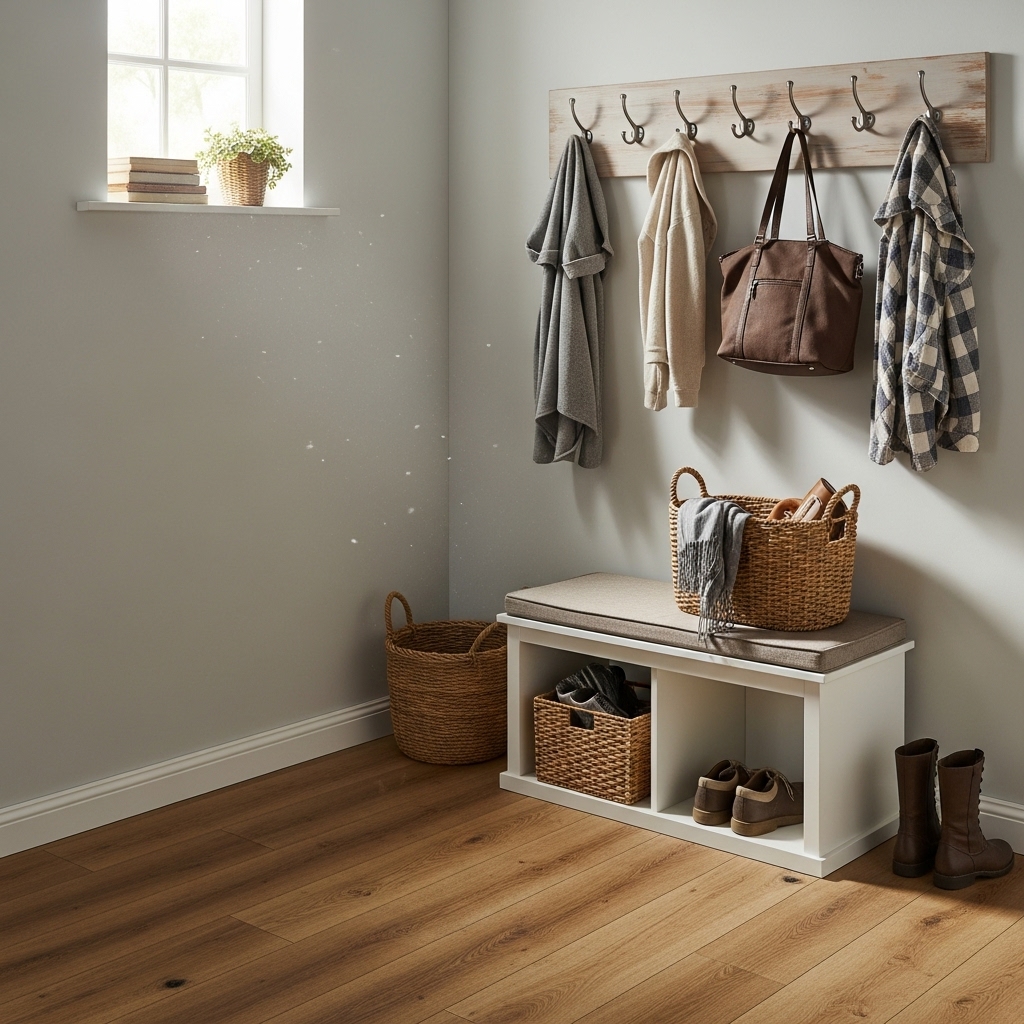
13. Cork Flooring
Cork is eco-friendly, soft underfoot, and naturally resistant to mold and mildew.
- Pros: Comfortable, warm, sustainable.
- Cons: Needs sealing, may scratch.
- Best For: Eco-conscious families.
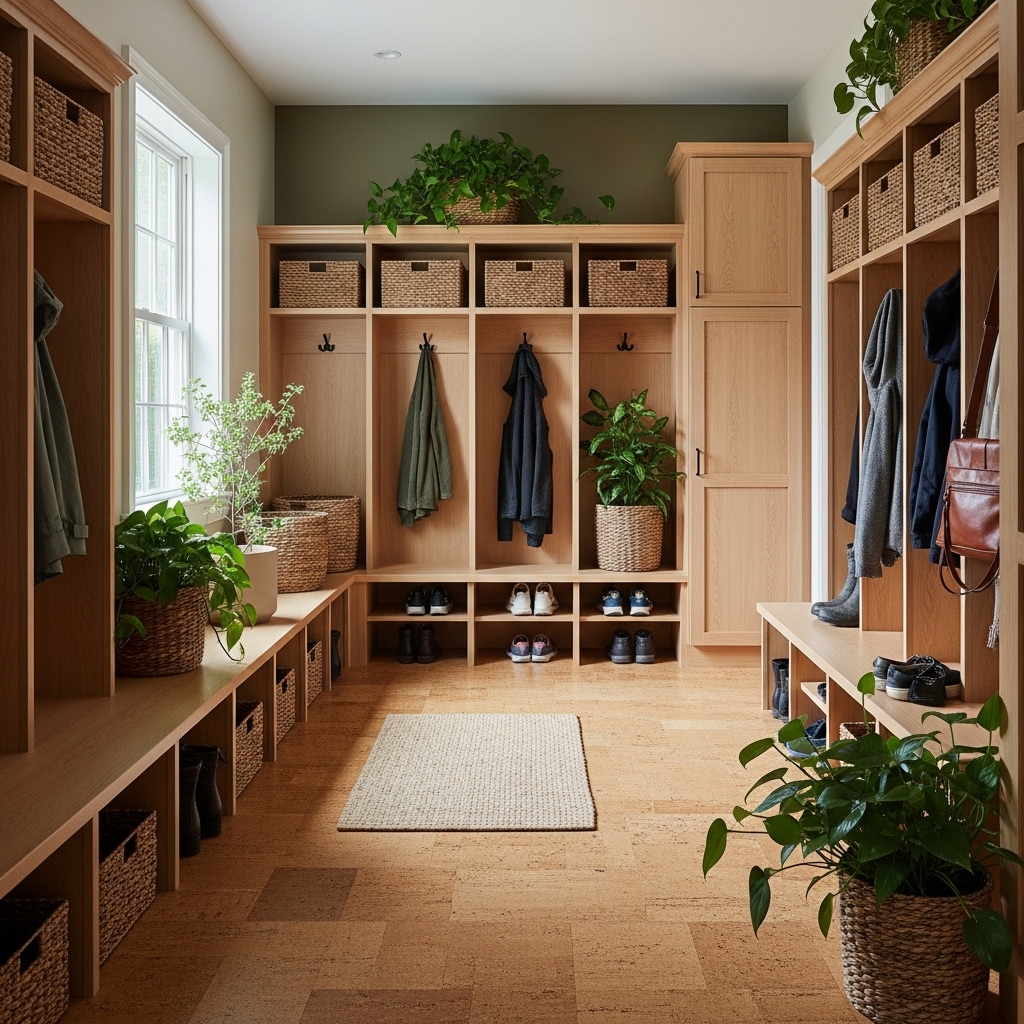
14. Bamboo Flooring
Bamboo is durable and more water-resistant than hardwood. It offers a modern, natural vibe.
- Pros: Sustainable, stylish, stronger than many hardwoods.
- Cons: Sensitive to excess moisture.
- Best For: Modern or Asian-inspired mudrooms.

15. Patterned Cement Tile
Cement tiles with bold patterns add character and style while being durable.
- Pros: Eye-catching designs, strong material.
- Cons: Requires sealing, can be pricey.
- Best For: Artistic and vibrant mudroom spaces.

Conclusion
Your mudroom flooring should combine style, durability, and practicality. From classic porcelain tile to eco-friendly cork, each option has unique benefits. The best choice depends on your budget, lifestyle, and design preference.
If you want a stylish entryway that can handle heavy traffic, moisture, and dirt, consider one of these mudroom flooring ideas and give your home’s first impression a practical yet beautiful upgrade.

